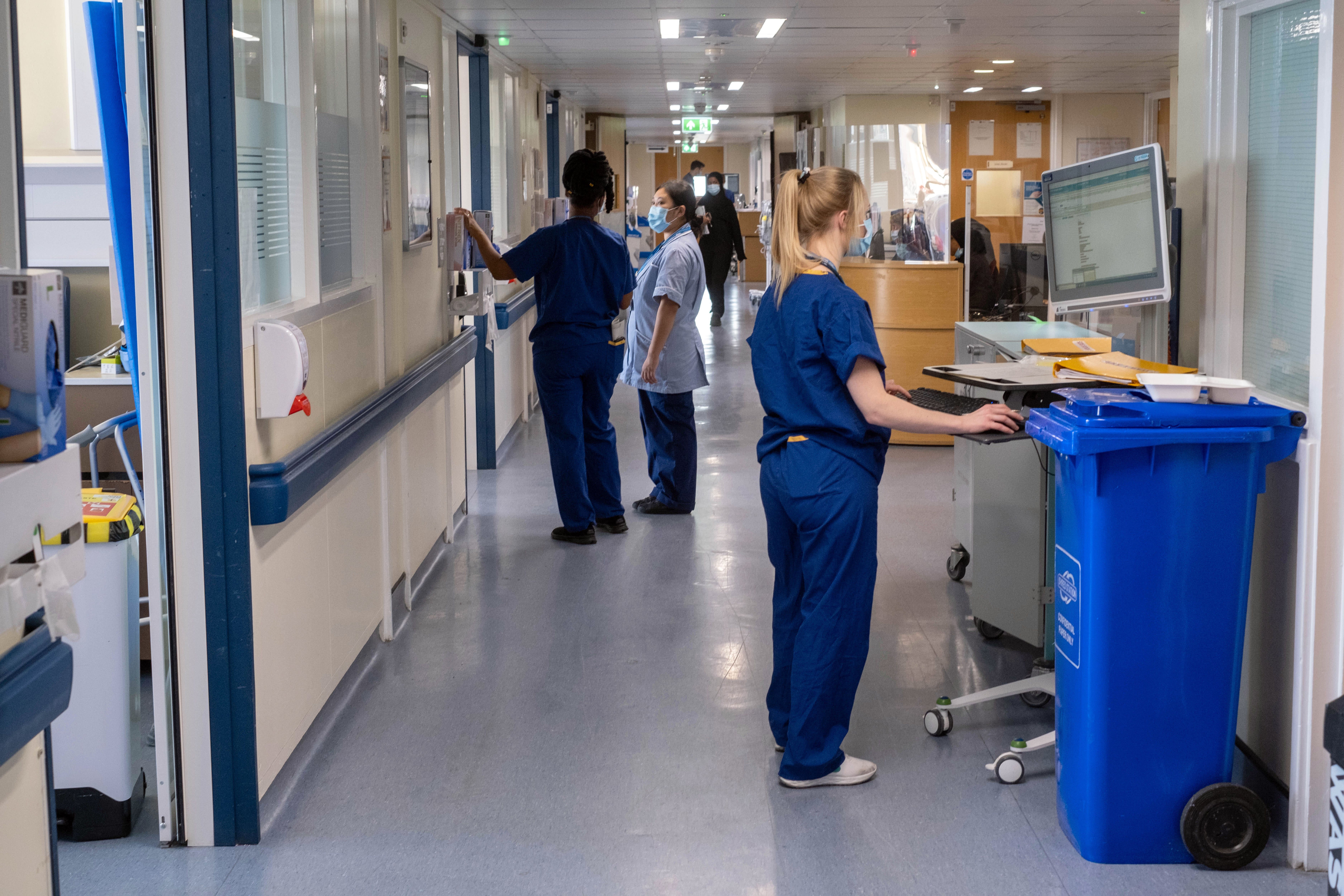Junior doctors in Scotland reject pay deal as union announces July strike dates
The offer was described by the Health Secretary as ‘final’.

Junior doctors in Scotland have voted to reject the Scottish Government’s “final” pay offer, increasing the threat of strikes.
BMA Scotland announced on Tuesday that 71.1% of those who voted on a 66.3% turnout rejected the deal – with strike dates now set for July 12 to July 15.
The Scottish Government offered a 14.5% pay increase over two years last month and has now called for an urgent meeting between Health Secretary Michael Matheson and the junior doctors.
In offering the deal last month, Mr Matheson said it would represent a more than £60 million investment, describing it as a “final offer”.
According to the union, 2,311 junior doctors voted to reject the deal, compared to just 939 who backed it.
Dr Chris Smith, chairman of the BMA’s Scottish junior doctor committee, said: “Our membership has once again spoken decisively and clearly.
“It is beyond doubt that they do not consider this offer sufficient to begin the process of addressing the pay erosion we have suffered since 2008 – when pay for a junior doctor was some 28.5% higher.
“That is why today we can confirm that we are now forced to act on the incredibly strong mandate given to us by members in our preceding strike ballot and announce a full withdrawal of labour for three days from Wednesday July 12.”
Dr Smith said the action was being taken reluctantly and the gap between the announcement and the walkouts would provide the health service with enough time to put a plan in place to deal with disruption, and for the Government to improve its offer.
Junior doctors, he said, are asking for a “viable path to righting the historical wrong of pay erosion”, which amounts to 26.5% in real terms in the past 15 years under the recent offer, claiming the NHS “simply won’t be here” in the future without investment in staff pay now.
“To show that they recognise this and the importance of investing in the medical workforce, the Scottish Government must take the steps needed to secure, retain and appropriately value Scotland’s junior doctors,” Dr Smith added.
“We cannot go on losing doctors to countries where they feel more valued and are paid fairly.
“Our NHS simply won’t be here for the people of Scotland in the long term if there is not action and investment now.
“That is why our message to the Scottish Government today is stark. Come back with an improved offer and we can still avert the need for strikes, and the disruption they will cause us all, and patients in particular.
“The ball is now firmly back in the Government’s court and I hope they respond urgently and positively.”
The Health Secretary said he was “disappointed” with the rejection, adding that strikes are “in no one’s interest”.
“I respect the outcome of the ballot. We negotiated in good faith, addressing concerns from junior doctors but this was only the start of the journey, not the end,” Mr Matheson said.
“This was the biggest investment in junior doctor pay for the last 20 years and a step forward to modernising pay bargaining, restoring confidence amongst junior doctors and ensuring that their contribution to our healthcare system is appropriately recognised.
“My door remains open, and I will meet with BMA Scotland later this week to discuss how we move forward.”
Scottish Tory health spokesman, Dr Sandesh Gulhane, said junior doctors were “at their wits’ end”, adding: “Michael Matheson has a duty to urgently address the poor conditions junior doctors are facing, such as guaranteeing they will get hot, nutritious meals at night and that rotas will be done six weeks in advance.
“The onus is on the SNP Government to get back round the table and find a solution to this dispute and deliver the modern, efficient and local health service that patients and staff need in Scotland.”
Scottish Labour deputy leader Jackie Baillie urged the Health Secretary to restart negotiations.
“The responsibility for this strike lies solely with Michael Matheson,” she said.
“Today, I am urging Michael Matheson to get around the table with the BMA and act to avert this strike by providing fair pay and conditions for junior doctors.”
Bookmark popover
Removed from bookmarks